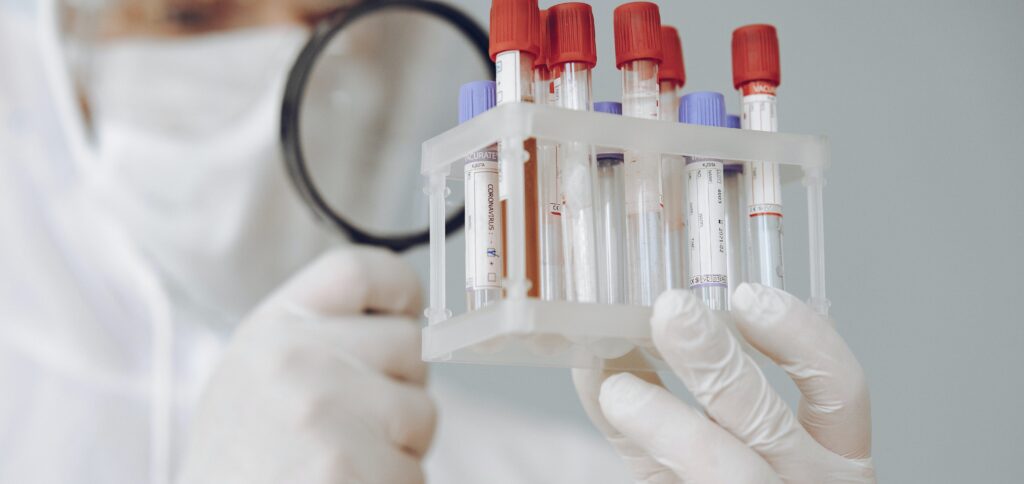“It was difficult to breathe… climbing the stairs to my apartment, on the 2nd floor, became impossible after Covid-19”, says Sandra Almeida, 35 years old, trader, who had Covid-19 before vaccination and was hospitalized for a week she lost her sense of smell, and felt extremely tired after the symptoms of the disease passed.
ADVERTISING
Sandra did not have to be hospitalized, but she felt her body responding to the virus “in a strange way”. It hurt in various parts of the whole body, even the skin. It felt like eternal inflammation!”, she says.
During the pandemic it became clear that Covid affects people differently in terms of severity. While some patients have mild or moderate symptoms, and others are still asymptomatic, some of those infected with sars-cov-2 develop potentially fatal systemic inflammation triggered by an exacerbated immune response – known as a cytokine storm.
In the most serious cases of Covid-19, patients generally spend days in intensive care, intubated, and experience complications such as pulmonary fibrosis and thrombosis.
ADVERTISING
This reaction may change with the scientists' new discovery. The results were disclosed No. The Journal of Clinical Investigation.

“We have been studying this pathway for a few years now for neuropathic pain and autoimmune disease. And, when the pandemic emerged, we soon suspected that blocking the cellular receptor for this peptide [C5a] could also be interesting against the inflammation associated with severe Covid. This is because we know that, although C5a has an important pro-inflammatory role, this pathway does not play a major role in combating infection. This is a mediator who, if blocked, not withpromete the individual’s response against the virus”, explains Thiago Mattar Cunha, professor at the Faculty of Medicine of Ribeirão Preto at USP and member of the Fapesp Inflammatory Diseases Research Center.
Covid-19 and C5
Cunha explains that C5 is an inflammatory mediator present in blood plasma and is part of the so-called complement system – part of the immune response responsible for forming the “cascade” of proteins that induces a series of inflammatory responses in our body to combat infection.
ADVERTISING
When inflammation occurs, the peptide is activated – becoming the C5a molecule – and begins to have a pro-inflammatory function. “This increased production of C5a is linked to a series of inflammatory diseases, such as sepsis, rheumatoid arthritis, inflammatory bowel disease, lupus, psoriasis and also to the lung damage observed in severe cases of Covid-19”, he states.
A discovery that could change the treatment of Covid-19 in its severe form
The finding confirms the role of C5a/C5aR1 signaling in Covid-19 and indicates that molecules that block binding to the receptor may be useful for treating severe cases.
“In our recent study, mice that received C5aR1 antagonists showed improvement in inflammation. We also demonstrated that, by blocking this system, infection control is not altered, that is, the viral load remained the same between animals that were treated with the antagonist and those that were not”, he says.
ADVERTISING
Improving inflammation without impacting viral load is an important attribute of the new molecule. This is because, currently, one of the main strategies for treating Covid is the use of corticosteroids, medications with anti-inflammatory and immunosuppressive action.
This class of medicine, therefore, reduces our body's response against the virus and also against secondary infections, such as bacterial pneumonia, for example. Which is bad for the bigger picture.
“The data from this study gives us clinical evidence that blocking the C5a/C5aR1 pathway works and is a beneficial treatment. We have already worked with this pathway for autoimmune diseases and pain. I believe that the next step is to start clinical tests with the antagonist molecule”, he comments.
ADVERTISING
(Source: Jornal da USP/ Fapesp Agency)
Read also
* The text of this article was partially generated by artificial intelligence tools, state-of-the-art language models that assist in the preparation, review, translation and summarization of texts. Text entries were created by the Curto News and responses from AI tools were used to improve the final content.
It is important to highlight that AI tools are just tools, and the final responsibility for the published content lies with the Curto News. By using these tools responsibly and ethically, our objective is to expand communication possibilities and democratize access to quality information. 🤖




